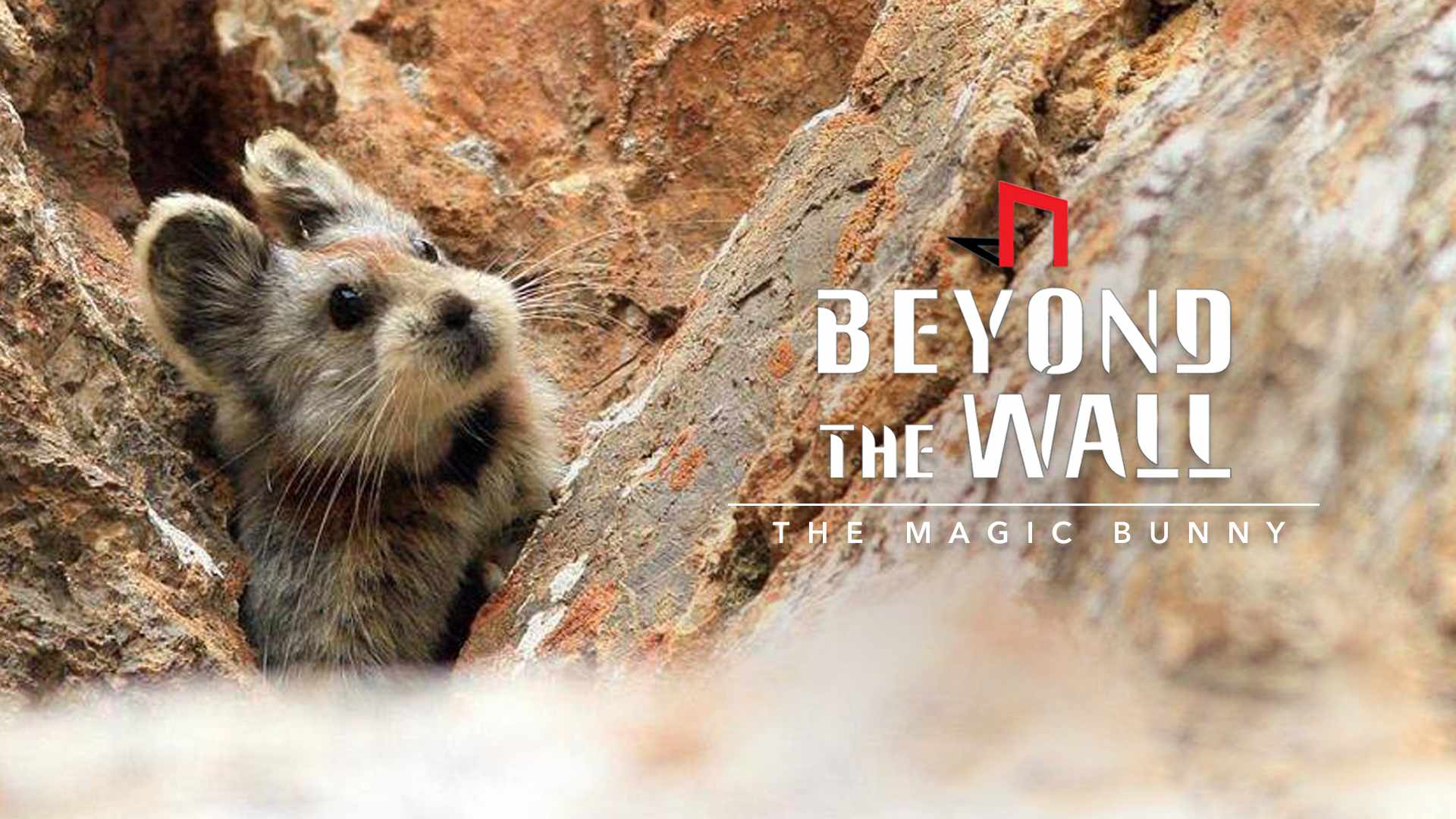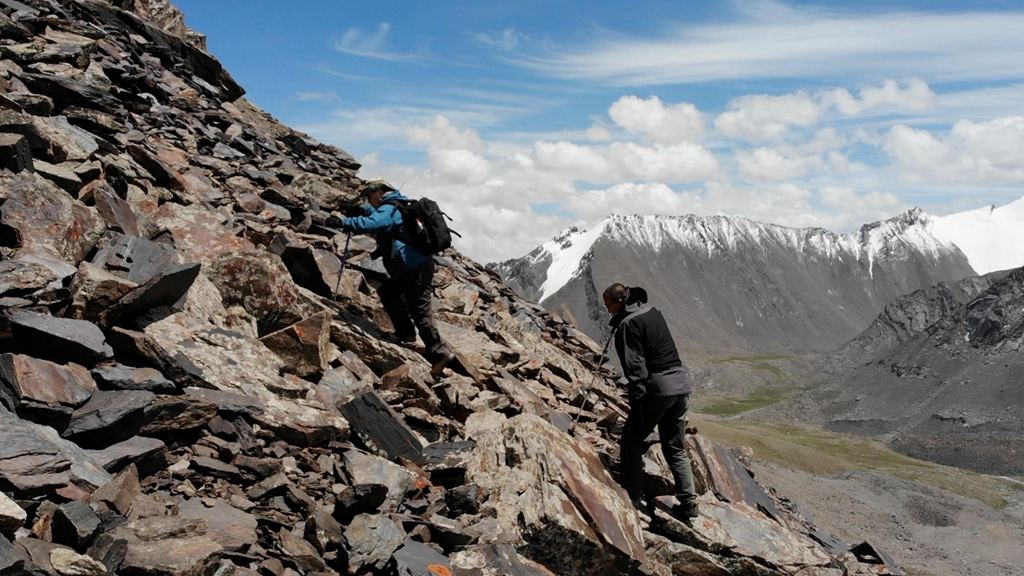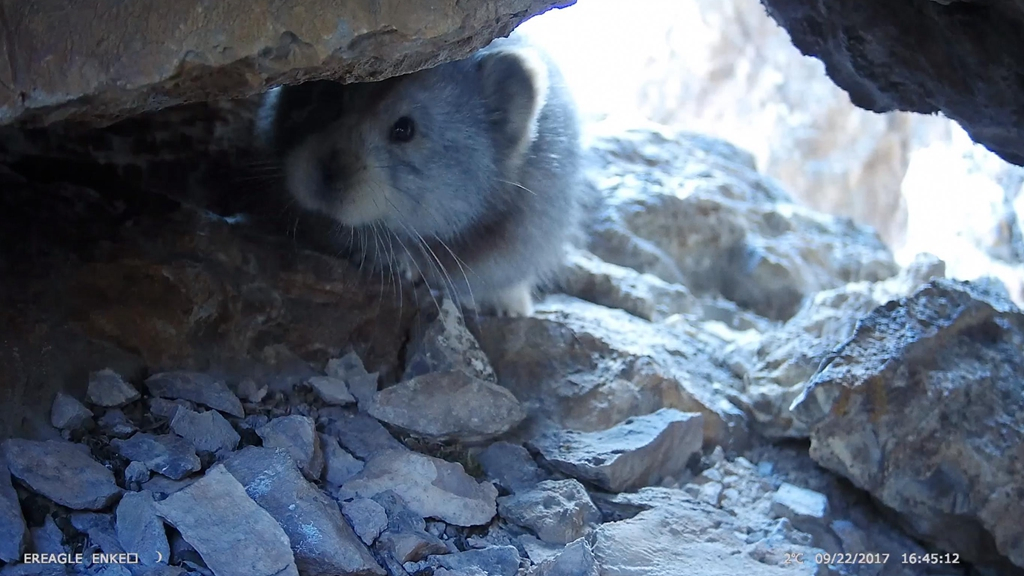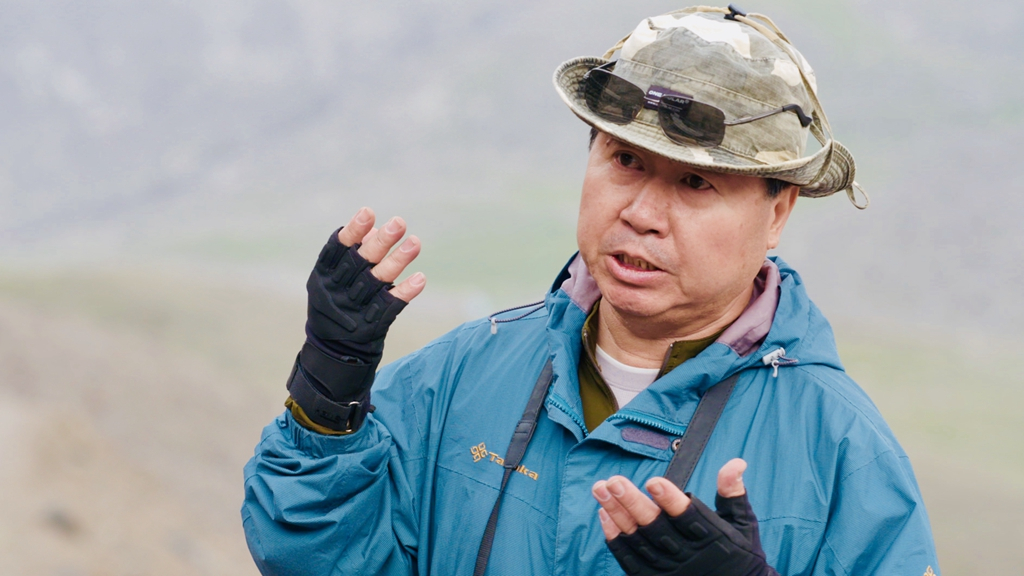
China
15:23, 14-Sep-2018
Reporter's Diary: A disappearing rabbit
Updated
15:03, 17-Sep-2018
By Han Bin, Huang Xiaodong
04:59

In Search of a Magic Pika
The cute mammal somewhat resembles a short-eared rabbit. And it is one of the world's most endangered animals – with fewer than 1,000 surviving in the wild. The pika habitat has shrunk by 70 percent over the years. Climate change is a threat to their existence.
Most now live at the No.1 Glacier, some 120 kilometers southwest of Urumqi in northwestern China. But it is melting at an alarming speed.
"The lli Pika is a cold-tolerant species and a barometer of climate change. If the rabbits disappear, it would mean that our human environment is also disappearing," says Li Weidong of the National Ecological Protection Studio in Xinjiang.

Conservationist Li Weidong leading the way climbing up the Tianshan Mountains to observe the conditions of the Ili Pikas. /CGTN Photo
Conservationist Li Weidong leading the way climbing up the Tianshan Mountains to observe the conditions of the Ili Pikas. /CGTN Photo
So Much in the Balance
Li Weidong first encountered the Ili Pika back in 1983. He managed to capture a snap of one in 2014. Now new cameras are used to get glimpses of their lives. The pikas make their home in the nooks and crannies high on the mountain. This helps them elude the hungry and stay safe, but it also makes Li's work more difficult.
Li says what's needed is a complete change in concept from observation alone. He is painfully aware of the urgency to set up a national reserve to help the animals keep breeding in the same area. And he wants to break public ignorance about climate change, as preserving the ecosystem is key.
"It's not possible to protect the single glacier; you have to protect the global climate, then you will be protecting the glaciers as well," says Professor Christoph Schneider of Humboldt University, Berlin.
"Many endangered species have disappeared without being documented. I'll feel so guilty if it becomes extinct in front of me," says Li.

A Ili Pika at No.1 Glacier /Li Weidong Photo
A Ili Pika at No.1 Glacier /Li Weidong Photo
Progress Is Unsteady
Rapid development has brought about many environmental problems. There have been numerous cases in which people sacrifice the eco-system to development, and have sped up climate change. The Ili Pika could become another victim. Environmentalists strongly believe that something needs to be done before it's too late. It's not the question of saving one or two species, it's a question of how we treat ourselves and the future.
Many say the concept of balanced development should be implemented, not only to save the rare animals, but to save the whole living environment. People need to understand that animal habitats are also humans' living spaces. And we should protect them rather than wait until they are on the verge of distinction.

Li Weidong of the National Ecological Protection Studio, Xinjiang, during an interview with a CGTN crew at the No. 1 Glacier /CGTN Photo
Li Weidong of the National Ecological Protection Studio, Xinjiang, during an interview with a CGTN crew at the No. 1 Glacier /CGTN Photo
Despite progress in conservation awareness, many say the concept of balanced development should be pushed harder. The fate of the pikas lies beyond the mountains. Li Weidong knows that if global warming continues, the magic bunny's chances will get even smaller.

SITEMAP
Copyright © 2018 CGTN. Beijing ICP prepared NO.16065310-3
Copyright © 2018 CGTN. Beijing ICP prepared NO.16065310-3